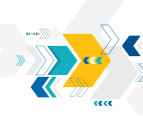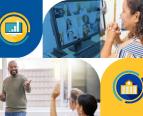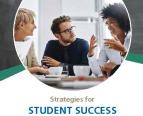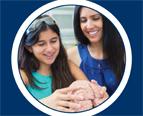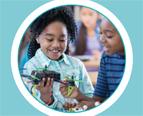Professional Learning Resources
This catalog describes our professional development offerings and includes the recommended audience and duration of each course, as well as how to contact us to schedule an event or training. All courses can be customized to meet the unique needs of your local union.
When you become a member of the AFT, you help protect our kids and communities. And we help you by offering educator-designed programs and resources that will enhance your professional growth and ensure children thrive. This brochure highlights many of these opportunities.
This guide offers recommendations and advice for states and locals interested in building and sustaining a successful professional development program. These recommendations provide a framework as we collectively strive to shape a culture of professional unionism that retains the principles on which the AFT was founded. (2025)

